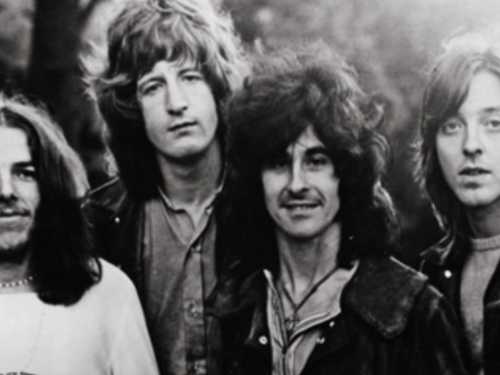
Few rock bands had such amazing opportunities to get started! Friendship with the Beatles, melodic songs, crowds of fans, critical acclaim… But the misfortunes that befell Badfinger ultimately ruined their brilliant career.
This Welsh band emerged on the scene under the name The Iveys in the early 1960s and went through several line-up changes before the classic line-up formed: vocalist/keyboardist Pete Ham, bassist Tom Evans, guitarist Joey Molland and drummer Mike Gibbins.
In the late 1960s, the team, which changed its name to Badfinger, was taken under their wing by the Beatles. A contract was signed with the Apple Records label. The name was suggested to them by John Lennon. The formula for success was developed by Paul McCartney himself. He wrote the excellent song “Come and Get It” for the team, recorded the demo himself and ordered not to deviate from the template even a step. Badfinger did just that. And they had a worldwide hit.
This was followed by equally cool stuff like “No Matter What” (1970), “Day After Day” and “Baby Blue” (1972).
Their song “Without You” (1970) became a number one hit in the US, performed by Harry Nilsson, and a decade later, a number one hit in the UK, performed by Mariah Carey.
They were adored by critics. The musicians were predicted to have fame comparable to that of the Beatles. They were called the direct heirs of the Beatles. They wrote excellent songs, and their creative energy seemed boundless. From 1968 to 1973, Badfinger recorded five albums and toured extensively, participating in the creation of the albums “All Things Must Pass” by George Harrison and “Imagine” by John Lennon.
And suddenly things went downhill. The group was instantly without money and without a career.
After the closure of Apple Records in 1973, the members of Badfinger faced a lot of legal and financial problems. Their next album was withdrawn from sale. The musicians spent several months without money. Panic began: especially among Pete Ham, who had recently taken out a mortgage on a house. In addition, his girlfriend was expecting a child.
The group tried to continue, but were turned down by everyone due to restrictive contracts and potential lawsuits. Left penniless, Evans became a milkman, Molland took up pipe repair. The once chart-topping Beatles protégés found themselves bankrupt and deeply in debt.
On the night of April 23, 1975, Pete Ham was drinking in a pub with Tom Evans. That same morning, 27-year-old Ham entered his garage, wrapped a clumsily tied noose around his neck and kicked a chair out from under his feet. In a suicide note, he blamed manager Stan Polley for his despair. The dishonest businessman simply robbed the group of a million dollars. A colossal sum!
In May, Warner Bros. dropped Badfinger, and the band disbanded. Around the same time, Apple removed all of their albums from its catalog.
Over the next three years, the remaining members of the band struggled to rebuild their personal and professional lives amid lawsuits that halted royalties for years. Subsequent albums (with decent songs!) flopped amid attempts to cash in on Badfinger’s legacy. Evans and Molland became bitter enemies.
After the suicide of bandmate Tom Evans, he was considered a “traitor.” Journalists suggested that he had provoked the tragedy. On the night of November 18, 1983, Evans and Molland had a telephone argument over royalties for the song “Without You.” On the morning of November 19, 1983, Evans hanged himself in the garden in the backyard of his home in Richmond. He left no note. He was 36 years old.
Ironically, a settlement was reached in September 1985, and the musicians were refunded their royalties. Reissues of Badfinger albums brought in additional funds that would provide Ham and Evans with a comfortable life for the rest of their lives.
In the 1990s, rock fans rediscovered Badfinger. Their albums were widely distributed on CD for the decade. In 2013, the song “Baby Blue” appeared in the series finale of “The Beach Boys,” introducing Badfinger to a new generation of listeners.
Джерело: ukr.media